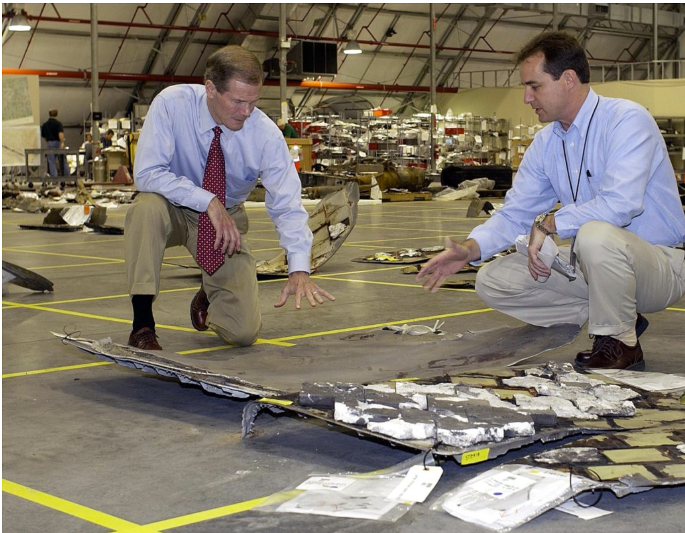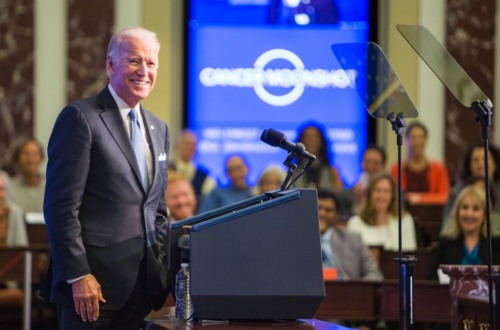Three years ago, former Florida Senator Bill Nelson told Politico, “The head of NASA ought to be a space professional, not a politician.” Now, his wish may come true — somewhat. On March 19, Nelson was nominated to lead NASA into the next stage of space exploration.
Nelson, a three-term Florida Senator, has an almost unparalleled history of involvement in space policy. As the chair of the House Subcommittee on Space and Aeronautics, Nelson was an integral part of many policy decisions, none more significant than the 2010 NASA Authorization Act. This monumental bill allocated $58 billion to NASA and detailed the agency’s goals for the early part of the decade.
The passage of the Authorization Act is a perfect example of one of Nelson’s most important qualities: his widespread bipartisan appeal. The act was authored jointly by the Republican Sen. Kay Bailey Hutchison and Nelson, and passed unanimously in the Senate. Nelson’s nomination has received bipartisan support. Rep. Bill Posey, R-Rockledge, told Florida Today that there are no predicted obstacles in the way of Nelson’s confirmation.
Nelson’s belief that space policy ought to be spearheaded by those with experience led him to become the first sitting House member to enter orbit. In 1986, Nelson was among eight men who spent six days orbiting around the Earth. In his memoir, he explained that he felt he needed to experience space firsthand to “speak about the space program accurately in Congress.”
However, some critics argue that Nelson’s space credentials are overexaggerated. In a tweet since made private, one planetary scientist at the Southwest Research Institute called the Columbia voyage “a joy ride.”
The controversy is nothing new: the public perception of the Columbia shuttle ride was that it was merely a political ploy. In fact, his nickname on the shuttle was “Congressman Ballast,” a nod toward his technical inexperience that rendered him unhelpful to the scientists conducting experiments during the voyage.
Mike Mullane, one of the astronauts on the voyage, wrote in his memoir that “none of the principal investigators of any of the experiments wanted Nelson anywhere near their equipment.”

One of Nelson’s crowning achievements – or notable failures, depending on who you ask – is the development of Nasa’s Space Launch System. The SLS, which has been touted as the most powerful rocket in existence, has been draining NASA resources in terms of both personnel and capital for the last decade. In fact, by the end of 2019, NASA had spent nearly $15 billion on the SLS program alone.
“[Nelson’s] legacy,” tweeted Lori Garver, Obama’s deputy NASA administrator, “is the monster rocket and, in some ways, it is poetic justice that it will be his cross to bear.” However, the performance of the SLS has taken a drastic upturn recently. The day before Nelson’s nomination, the SLS had a successful test firing of its engines. This success has led scientists to predict a launch date of early 2022.
The SLS will be uniquely capable of transporting astronauts to the moon, a task that has not been achieved in decades. This task, encompassed by NASA’s Artemis program, had a 2024 deadline, as set by the Trump administration, though NASA suggests 2028 may be a more feasible timeline. The SLS, if it is operational, will likely be an integral part of this effort.
Nelson’s advocacy for the SLS may be an indication of his ability to understand the long-term benefits of policy. A focus on forward-looking policies can be crucial in a field like space exploration, which can take years and decades to progress. On the other hand, it could represent a dogged dedication to an expensive project that may already be obsolete.
One policy shift in Nelson’s platform is the role of private industry in space travel. In the past, Nelson has promoted the use of SLS for moon voyages over commercial launchers, which many proponents say would be less expensive and more efficient. In a 2010 hearing, Nelson called repeatedly for the $6 billion earmarked for commercial space innovation to be redistributed to the SLS project.
However, Nelson has become much more favorable toward private space exploration, later supporting the commercial incentive program. Dale Ketcham, the vice president of Space Florida, told the Orlando Sentinel that “[Nelson’s] opinion of the ability of the commercial sector evolved as those capabilities were demonstrated, which is good.”
Nelson has strong support from more than just his colleagues on the Hill: the private sector of space innovation is also applauding the nomination. The Commercial Spaceflight Federation, an industry association representing over 85 member companies including preeminent companies like SpaceX and Blue Origin, publicly endorsed Nelson’s nomination.
Though Nelson may not be a space professional, he may very well be called a professional space politician: throughout his long career on the Hill, he has been instrumental in the passage of NASA-related legislation and in ensuring that space exploration remains a priority, regardless of the sitting administration.
Nelson’s career-long passion for space combined with his political expertise could allow him to lead NASA through a new and exciting period of space exploration. On the other hand, there are very real concerns surrounding his ability to decide when a project shows little benefit compared to the exorbitant prices of innovation, an issue exemplified by the SLS debate.
When speaking at the former NASA administrator’s confirmation hearing, Nelson argued “NASA is not political. The leader of NASA should not be political…[but] should be a consummate space professional who is technically and scientifically competent and is a skilled executive.”
Though Nelson has undoubtedly been a major figure in space policy throughout his career and has widespread bipartisan support, his lack of technical qualifications and rocky history with fiscal spending may present concerns when weighing Nelson’s ability to lead this decade’s exploration of the final frontier.
Featured image: Nelson (left) examining debris from the Columbia shuttle at the Kennedy Space Center. Unmodified public domain photo by NASA.
Check out other recent articles from the Florida Political Review here.





